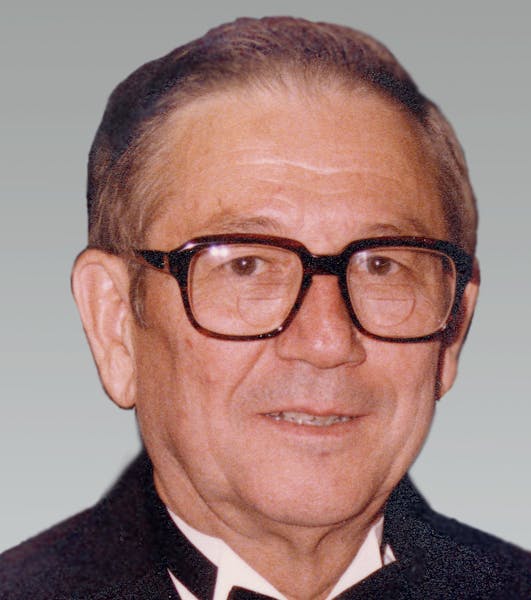WASHINGTON - A program that steered an ex-convict into a successful job and eventually his own home in Fridley was inspiration to two Minnesota lawmakers who helped push a sweeping overhaul of federal workforce training programs through Congress this week.
David Schaenzer, 25, went to prison in 2007 for three felonies. While incarcerated, Schaenzer, who had always been interested in welding and working with his hands, heard through a local job-training program that a few nearby manufacturers needed workers.
Once out of jail in 2009, Schaenzer attended Hennepin Technical College and learned skills that eventually got him hired full time by Erick Ajax, who owns a precision metal company called E.J. Ajax.
"When I was in prison and they said I could go to school working with equipment and I wouldn't be staying in a cell," Schaenzer said, "I did it."
The revamp of federal workforce training programs, which passed nearly unanimously in the House and in the Senate over the past two weeks, is expected to be signed by President Obama. Based on successful stories back home, GOP Rep. John Kline and Democratic Sen. Al Franken helped push through an initiative that requires workforce centers to work with the private sector.
In other words, when Ajax needs highly skilled workers, Hennepin Technical College will pair up with a workforce center where unemployed people go and create a program to train them in metal stamping.
Franken said it shifts the philosophy from "train and pray" to ensuring potential workers learn skills in areas where employers have needs.
"I had seen these partnerships all over the state and I say let's reward businesses where they have skin in the game, where they can demonstrate that they can create jobs," Franken said.
The federal revamp of the workforce law, reached after months of work and compromise, cements a number of measures already being employed in some of Minnesota's 49 federally funded workforce centers. It authorizes more than $50 billion over six years for programs that aim to help youth and veterans. The overhaul also eliminates 15 programs found to be duplicative or dormant since Congress last worked on the issue 16 years ago.
Kline called the old system "horribly broken" because there were redundancies and bureaucracies that made it harder for states and employers to help those seeking work.
"You're identifying jobs that have openings that are available now," said Kline, chairman of the House Education and Workforce Committee, which led the bill through the House.
Anne Kilzer welcomes the fresh language because the economy has dramatically changed since 1998. In recent years, Kilzer, the executive director of the Minnesota Workforce Council Association, said she would scan the Web for labor market information when crafting training programs.
"We've been doing these things because the economy has changed but the old language didn't encourage it," she said.
Erick Ajax has hired four employees with criminal backgrounds who have undergone training. Ajax, who says he pays well, needs metal formers, laser operators, sheet-metal fabricators. The demand is so great he even gets together with his competitors to urge community colleges to build training programs. Ajax has been back and forth to Washington a handful of times to urge Congress to create and fund programs that match those seeking work.
"It was something I have been pushing, and it was like falling on deaf ears," Ajax said. "I have been to Washington, and I have talked about how successful these partnerships are. It all boils down to talent."
Schaenzer, who has worked at Ajax for four years, is in his talent pool. Because no landlord would rent to him because of his convict status, for years Schaenzer stayed with friends and girlfriends under their leases and squirreled away money. Last year, he was able to buy a house in Fridley. He recently went to speak with young offenders and share his story.
"Unfortunately there aren't a lot of people in the correctional system who are interested in utilizing this, but I did," he said. "Even if you can reach four people in each class you're doing pretty good, I think."
Allison Sherry • 202-383-6120
Former Wisconsin Democratic Rep. Peter Barca announces new bid for Congress
The Latest | Jury selection enters a pivotal stretch as Trump's hush money trial resumes

